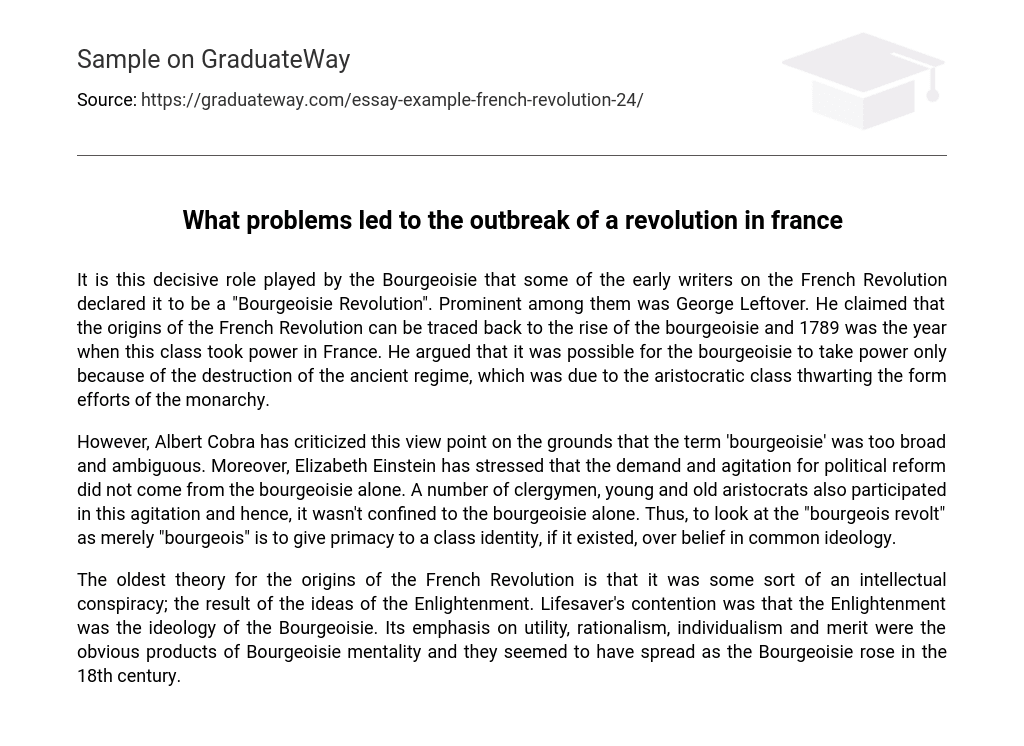It is this decisive role played by the Bourgeoisie that some of the early writers on the French Revolution declared it to be a “Bourgeoisie Revolution”. Prominent among them was George Leftover. He claimed that the origins of the French Revolution can be traced back to the rise of the bourgeoisie and 1789 was the year when this class took power in France. He argued that it was possible for the bourgeoisie to take power only because of the destruction of the ancient regime, which was due to the aristocratic class thwarting the form efforts of the monarchy.
However, Albert Cobra has criticized this view point on the grounds that the term ‘bourgeoisie’ was too broad and ambiguous. Moreover, Elizabeth Einstein has stressed that the demand and agitation for political reform did not come from the bourgeoisie alone. A number of clergymen, young and old aristocrats also participated in this agitation and hence, it wasn’t confined to the bourgeoisie alone. Thus, to look at the “bourgeois revolt” as merely “bourgeois” is to give primacy to a class identity, if it existed, over belief in common ideology.
The oldest theory for the origins of the French Revolution is that it was some sort of an intellectual conspiracy; the result of the ideas of the Enlightenment. Lifesaver’s contention was that the Enlightenment was the ideology of the Bourgeoisie. Its emphasis on utility, rationalism, individualism and merit were the obvious products of Bourgeoisie mentality and they seemed to have spread as the Bourgeoisie rose in the 18th century.





